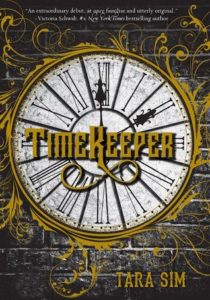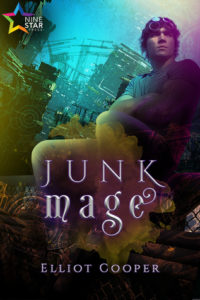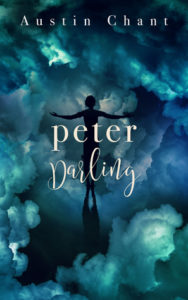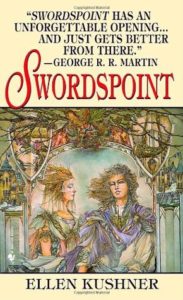-
Review: Timekeeper by Tara Sim (2016)

“Danny had most certainly fallen down the rabbit hole. He didn’t know if he ever wanted to return.”
– Timekeeper, Tara Sim
Rating: ★★★½
Genre: Fantasy, YA
Categories: M/M, alternate historyContent Warnings (highlight to read): N/A
Description: Danny is a clock mechanic, tasked with keeping the world’s clocktowers running in an alternate Victorian world. These clocktowers literally keep time: if a town’s tower is broken, time around it grows out of sync, or may even stop entirely, trapping those inside its influence in an infinite loop. When a series of bombings starts attacking clocktowers around England, Danny urgently works to solve the mystery, alongside a mysterious clock spirit that he becomes very invested in protecting.
-
Review: Junk Mage by Elliot Cooper (2016)

“It’s a gift, not a trade.” Or it wasn’t a sly trade anymore, anyway. I couldn’t handle his haunted look, as if I’d just given him everything and he wasn’t allowed to keep it.
– Junk Mage, Elliot Cooper
Rating: ★★★½
Genre: Science fiction, fantasy, romance
Categories: M/M, cyborgs, wizards, technomancy, personhood arcContent Warnings: N/A
Description: Quill, an emotionally immature but well-intentioned technomancer, crash-lands his spaceship on a remote planet and has to figure out how to repair his ship in order to leave. There he meets Hunter, an amnesiac cyborg, whose trust (or cooperation) he has to earn in order to get off the planet and to not lose his best shot at a new life.
-
Review: Peter Darling by Austin Chant (2017)

“That’s the trick of growing up. Nothing stays the same.” Hook sounded oddly sympathetic. “You see the faults in everything. Including yourself.”
– Peter Darling, Austin Chant
Rating: ★★★★★
Genre: Fantasy, fairy tale, romance
Categories: M/M, trans, enemies to lovers, fairy tale retellingContent Warnings (highlight to read): Deals with societal & familial transphobia. Some death & violence but not graphic.
Description: A sumptuously gorgeous re-imagining of Peter Pan where the fairies are all the more strange and where Neverland—and your identity—is what you decide to make of it. Enemies-to-lovers Peter & Hook: if this is automatically selling point, great, you won’t be disappointed. If it makes you raise your eyebrows: trust me, the storytelling, characterization & development is so deftly woven that you also won’t be disappointed.
“Ten years ago, Peter Pan left Neverland to grow up, leaving behind his adolescent dreams of boyhood and resigning himself to life as Wendy Darling. Growing up, however, has only made him realize how inescapable his identity as a man is.”
-
Review: Swordspoint by Ellen Kushner (1987)

“Above him, the stars shone frosty and remote in the clear sky. They wouldn’t dare to twinkle at him, not in the position he was in.”
– Swordspoint, Ellen Kushner
Rating: ★★★★★
Genre: Fantasy, romantic (but not a romance)
Categories: M/M, M/F, politics & intrigue, royalty and nobility, hidden identity, swords & swordplayContent Warnings (highlight to read): Frequent but not super graphic murder & violence. Recreational drug use. Discussions & ideation of suicide. Very morally ambiguous protagonists.
Description: A “classic melodrama of manners” where disputes are settled with sharp blades and sharper tongues. Swordspoint follows an interweaving set of characters and perspectives in a struggle for political power in the world of Riverside: Richard St Vier, an excellent swordsman but not much for conversation; Alec, his sharp-tongued lover with bad habits and worse ideas; Michael Godwin, a young lord who finds himself involved in games over his head; an elegantly powerful Duchess; and the rest of an engaging and largely morally ambiguous cast.
-
Review: A Tree of Bones
5/5 stars. Buy at: Amazon
| Barnes & Noble
A Tree of Bones by Gemma Files is the third book in the Hexslinger trilogy, with the first two being A Book of Tongues
(which I review here) and a A Rope of Thorns
(which I review here). I’m not trying to avoid spoilers for the first two books, only the third, so if you haven’t read the first two stop reading now.
So, to begin this review: aaaaaaaaaaaaaaaaaaaaaaaaaaaaaaaaaaaaaaaaaaaaaaahhhhhhhhhhhhhhhhhhhhhhhhhhhhhh!!
Okay. Now that I’ve got that out, let’s do this properly.
After the horrifying outcome of A Rope of Thorns, the crew is left scattered across the land—and, in fact, across literal worlds. Chess Pargeter, last seen in hell, is trying to find his way back to his now Enemy-occupied living body, with only his abusive mother’s ghost as company. Ed Morrow is back working for Pinkerton, but a Pinkerton who has become a horrific soul-sucking artificial hex. Yancey is working with an unlikely group of hexes, struggling to use her skills to speak with the dead to be put to an unusual use. And, of course, Asher Rook continues to make only the most dubious of decisions while working for the wife-goddess who he has come to loathe.
If this wasn’t a perfect book—and I’m sure it has to have flaws, though I’m hard-pressed to find them immediately upon putting it down—it was close enough to it that I can’t even consider not giving it a 5/5 rating. The now-enormous cast all worked, everyone’s motivations driving their actions and knitting a good dozen B-plots together into the A-plot in a way that left me guessing right up to, and in some ways even through, the climax itself. The first book started with a small band of narrow-minded white men telling their own story while Othering everyone around them, and blossomed, over the next two books, into a bigger picture where a wide array of humanity were claiming their own stories and clashing together however needed to do so. I’ve been reading on my lunch breaks, but the story was too intense, and I actually neglected doing my own writing in favor of just finishing it off in one go tonight.
In almost every way—I’ll get back to that in a moment—this is the story I had hoped it would be from when the first bad decisions began. I’m not a fan of grimdark, I think I said in an earlier review, but this story struck me as something that wasn’t grimdark. It was grim, and it could occasionally be gritty, and by god, it was visceral, full of blood and guts and sex and pain. But all of that is fine, if the message of the story isn’t hopelessness. And it’s not. It’s a story about redemption, a story where bonds are important from start to finish. It’s a story where you know from the previous books that even death isn’t the end to a person’s story, nor what they’re capable of—and by God, if you had any doubt in that despite Chess’s first resurrection, Files makes sure to start you off on that foot with Chess’s trip through the underworld and the chance to see the continuing stories, good or ill, of the people he meets there. Because of that, the stakes are able to be high and include death of a variety of characters without the usual problem of killing characters off—which is that death, in most stories, is the end. It can be a powerful tool in an author’s arsenal, because a dead character causes the readers’ shock at that character’s potential cut short, but it also means broken storylines, never to see an end. Starting from a premise of underworld gods and souls that have their own business, just not with the living most of the time, means that the same thing can be used for the same impact in the story but without the same cost. It was still high stakes, and still worth mourning, but you-the-reader knows that some part of those characters may have some conclusion to their emotional story at some point, even if we don’t see their personal afterlife journey.
So ultimately it walks the edge of violence and pain and high stakes and loss without losing forgiveness and hope and redemption as possibilities for any of these characters.
I said above that there was one thing that wasn’t what I hoped it would be, and it’s involving a specific romantic subplot. I’m going to avoid details for spoilers’ sake, but the way it had concluded surprised me, given how it had been set up and was developing. I think it absolutely could have given me that payoff that I had personally hoped for, from what had come before. But—and here’s the big but—just because it could have, and just because it was how I would have preferred it to end, didn’t mean that the way it played out wasn’t equally possible, taking all the circumstances into account. I’m sure some part of my heart is going to hope that some time in the unknown offscreen future, when things have been dealt with and settled more, the possibility could be there again. Pity my shipper heart! But at the same time, what did happen was fine too, and worked with what the story gave us, and on top of that, it opened other doors too. I was content with it, even if it wasn’t the outcome I had personally hoped for. As Chess Pargeter would say, if things weren’t the same, they’d be different.
One of the themes of the story is that very thing—that there are multiple possible outcomes to situations, because people drive their own stories, and if things don’t happen one way, they’d have happened another. The way everyone’s stories come together and diverge, their lives playing out as their own motives push them forward, fit that perfectly; the author picked a hard, hard theme to embody through the story itself, but succeeded at it admirably.
I feel like I have so much more to say—goodness, but I want to write an essay about Asher Rook and how his choices spun out of his traumas and fears!—but a review isn’t the best place for that. So I think I’ll just leave it at this:
I’m glad I read this, and I highly recommend it.